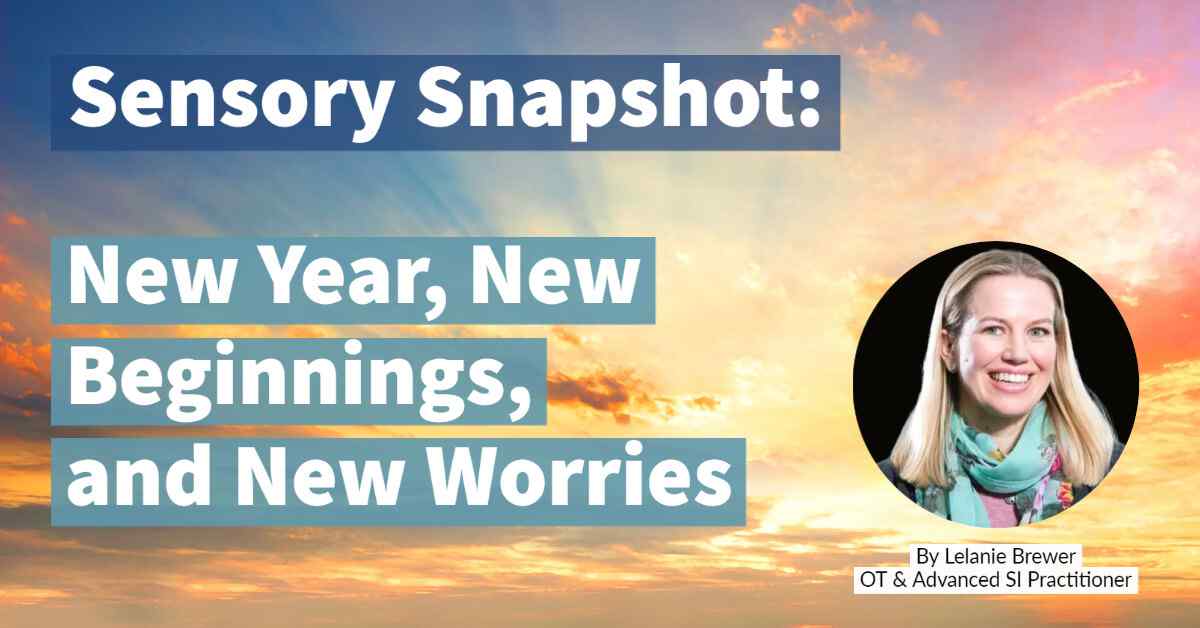Sensory Snapshot: New Year, New Beginnings, and New Worries
By Lelanie Brewer, 1 January 2023

The New Year is an exciting opportunity for a reset and a fresh start. But it brings many unknowns, which can be anxiety-provoking for people with sensory processing differences. Additionally, the New Year is a time of transitions. In the Southern Hemisphere, the New Year marks the start of a new school and academic year. In the Northern Hemisphere, January can be a deflating comedown from the festive season.
Individuals with sensory integration or processing difficulties can demonstrate anxious behaviour, become easily stressed, and appear more sensitive than usual when presented with transitions and change. Younger children also find change and transitions difficult as the regulatory part of their brain is not fully developed yet. For autistic children, who may have less cognitive flexibility and a harder time regulating their emotions, new beginnings are coupled with many challenges.
So, what kind of behaviours might someone struggling with transitions present with? For young children, this can be reverting to bed wetting or acting out; with older children, this can present as anger or shutting down and refusing to engage. In adults, anxiety around transitions can manifest through difficulty sleeping, withdrawal from others, and irritability with others. These behaviours are caused by the mental stress of finding a new way to do things.
Now that we recognise these behaviours, what do we do about them? Sensory-based strategies to reduce anxiety can be very helpful when presented with change and transitions. ‘Heavy work’ activities that provide proprioceptive feedback can be very calming and effective, helping reduce stress and anxiety. For children, this can include games with lots of pushing and pulling, and climbing. For teens and adults, climbing and yoga are excellent sources of proprioceptive input that can help you feel calm and organised. Exercising and muscle relaxation can also be helpful, and fidgets can be great for all age groups. There are many more activities that can be helpful, but these are my go-to suggestions for resetting when feeling stressed during change and transition.
Wishing you all the best for a great year ahead filled with wonderful adventures!
Lelanie Brewer
PS: For more ideas, see this Self-Regulation Techniques for Sensory Teens article.
Sensory Snapshot is a regular series by Advanced SI Practitioner and OT Lelanie Brewer. Lelanie gained her MSc in OT at Brunel University, London, and is pursuing a PhD with Newcastle University. Experienced in the NHS, charity and private sectors, as well as being a UK university senior lecturer, Lelanie is the Lead for Continuous Professional Development at Sensory Integration Education.

